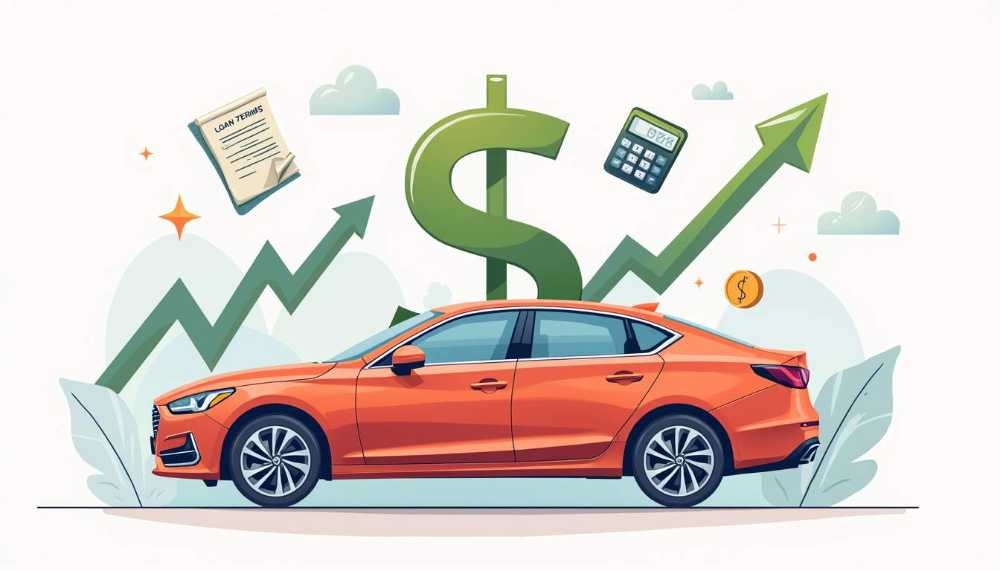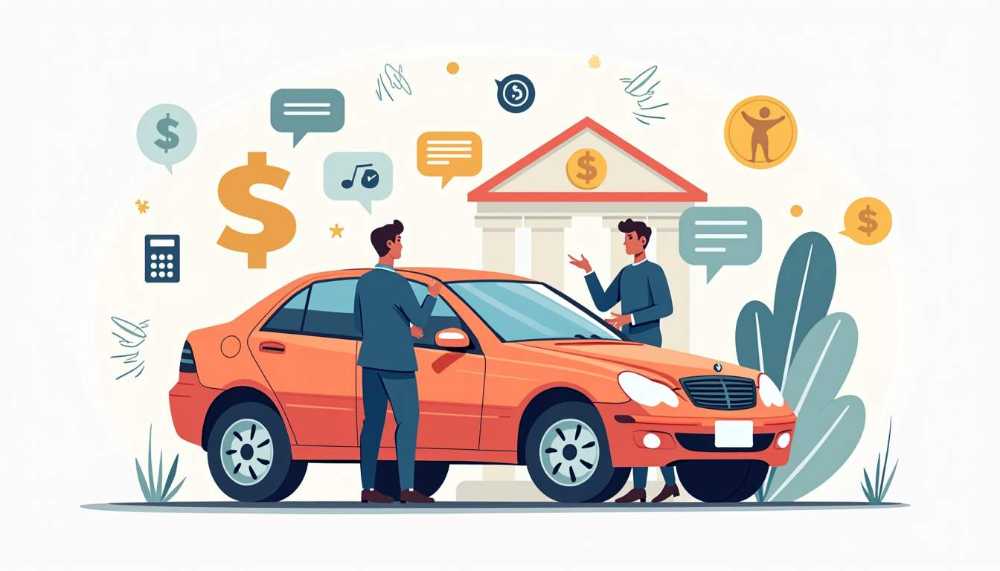Refinancing your car loan can be a strategic move to save money on interest payments and reduce your monthly expenses. However, securing the best interest rates requires a good understanding of various factors involved in the refinancing process. This article will guide you through understanding car loan refinancing, the factors affecting interest rates, how to prepare for refinancing, tips for negotiating lower rates, and the final steps in the refinancing process.
Understanding Car Loan Refinancing
Car loan refinancing involves replacing your current auto loan with a new one, ideally at a lower interest rate. The primary aim is to decrease your payments, reduce the total cost of the loan, or change the loan term. By refinancing, you may also have the opportunity to borrow additional money if your car’s value has increased, all while maintaining a potentially more favorable rate.
The Basics of Car Loan Refinancing
The process starts with applying for a new loan with a lender that offers better terms than your current lender. This involves submitting information about your vehicle, financial condition, and credit history. Once approved, the new lender pays off your existing loan, and you begin making payments on the new loan.
Refinancing can be particularly beneficial for individuals whose credit scores have improved since they first obtained their loan. A better score can lead to more favorable interest rates, resulting in significant savings over time. Moreover, it’s essential to shop around and compare offers from multiple lenders, as rates and terms can vary widely. Online tools and calculators can help you estimate potential savings and determine whether refinancing is the right move for your financial situation.
Why Consider Refinancing Your Car Loan?
There are several reasons to consider refinancing your car loan. If interest rates have dropped since you first financed your vehicle, refinancing could lower your monthly payments significantly. This can free up cash for other expenses or savings, allowing you to manage your finances more effectively.
Additionally, if your financial situation has improved, such as obtaining a higher-paying job or paying down existing debt, you might qualify for better rates. Furthermore, if you want to shorten your loan term to pay off your vehicle faster, refinancing may help achieve this goal by resetting your loan with improved terms. Another aspect to consider is the potential for refinancing to provide you with a cash-out option, which allows you to access some of the equity you’ve built in your vehicle. This can be particularly useful for funding unexpected expenses or making necessary repairs, giving you more flexibility in your financial planning.
Factors Influencing Car Loan Interest Rates
The interest rates offered on car loans can vary widely depending on several key factors. Understanding these can help you make informed decisions when considering refinancing.
Credit Score and Interest Rates
Your credit score is one of the most significant factors influencing your interest rates. Lenders use this score to assess the risk of lending you money. Generally, higher credit scores result in lower interest rates.
If your score has improved since you took out your original loan, it may be worthwhile to check current rates, as you could save money over the life of the loan by refinancing. Additionally, it's important to regularly monitor your credit report for any inaccuracies that could negatively impact your score. Disputing errors and maintaining a healthy credit utilization ratio can further enhance your creditworthiness, potentially leading to even better loan terms.
Loan Term and Interest Rates
The length of your loan term also impacts the interest rate. Typically, loans with shorter terms have lower interest rates, while longer-term loans carry higher rates. If you can afford the higher payments, refinancing to a shorter term might not only save you on interest but also help you become debt-free sooner.
Conversely, if cash flow is a concern, extending your loan term may lower your monthly payments, but it is essential to weigh this against the increased total interest paid. Additionally, consider how the loan term aligns with your financial goals; for instance, a longer-term loan might be more manageable in the short term but could hinder your ability to save for other financial milestones, such as buying a home or investing for retirement.
Lender Policies and Interest Rates
Different lenders have various policies regarding interest rates. Some may specialize in loans for those with poor credit, while others may focus on customers with excellent credit. Shopping around for different lenders can provide options that better fit your financial situation and yield the best rates.
Pay attention to additional fees and charges, as these can affect the overall cost of refinancing even if the interest rate appears low. Furthermore, understanding the lender's reputation and customer service can be crucial; a lender that is responsive and transparent can make the refinancing process smoother and less stressful. Look for reviews or ask for recommendations to ensure you choose a lender that aligns with your needs and expectations, as this can make a significant difference in your overall experience.
Preparing for Car Loan Refinancing
Once you've decided to move forward with refinancing, preparation is key to securing the best interest rates. Organizing your financial information now will make the process smoother and increase your chances of approval.
Checking Your Credit Score
Before approaching lenders, check your credit score to understand where you stand. Obtaining a free credit report can help you identify areas where you may need improvement. If your credit score is lower than expected, take the time to address issues such as paying down debt or correcting any inaccuracies in your report.
Reducing Your Debt-to-Income Ratio
Another critical factor is your debt-to-income ratio (DTI), which compares your monthly debt payments to your monthly income. A lower DTI indicates a better ability to manage debt and reflects positively on your refinancing application.
Shopping Around for the Best Rates
Don’t settle for the first offer you receive. Instead, take the time to shop around and compare rates from multiple lenders. Online resources can simplify this process, allowing you to view rates from various lenders quickly.
Negotiating for Lower Interest Rates
Once you have done your homework, you may have room to negotiate for better interest rates with potential lenders. Knowing what offers are available can empower you during this process.
Tips for Successful Negotiation
When negotiating, be upfront and clear about your financial standing and what you hope to achieve. Present any competing offers or evidence that support your request for a lower rate or better terms. Lenders may be willing to adjust their initial offers to secure your business.
Understanding the Fine Print
Always read the entire loan agreement before signing. It is essential to understand all the stipulations, including any penalties for prepayments or hidden fees. Asking for clarification on any unclear terms can save you from potential pitfalls later.
Finalizing Your Car Loan Refinance
After negotiating your loan terms, the final step involves completing the refinance application and preparing for what comes next.
Completing the Refinance Application
Gather all necessary documentation, including proof of income, information about your current loan, and identification. Fill out the application accurately, as errors may delay the process.
What to Expect After Refinancing Your Car Loan
After your application is approved, you will sign the new loan documents, and your previous loan will be paid off. Expect to receive a confirmation once the transition has been completed. Keep a close eye on your budget to ensure that the new payments align with your financial goals.
By following these steps and understanding the components of car loan refinancing, you can position yourself to secure the best possible interest rates and optimize your financial future.






